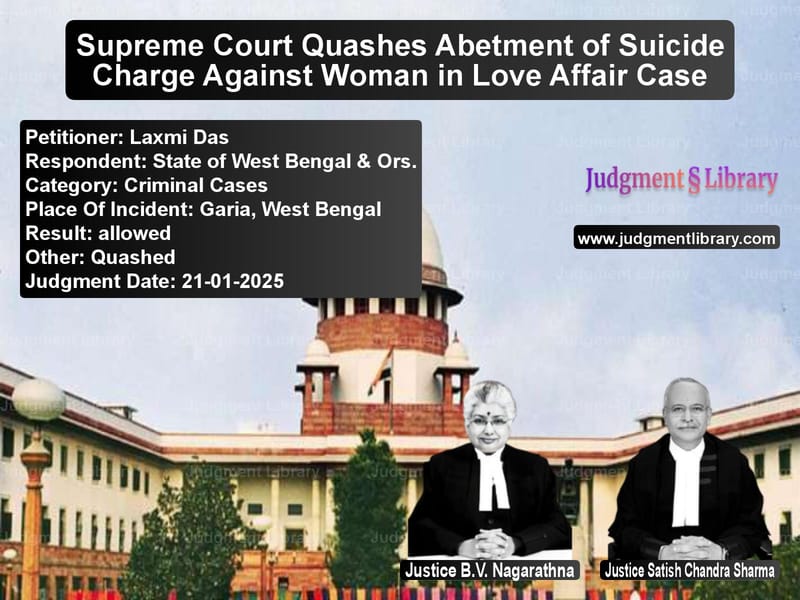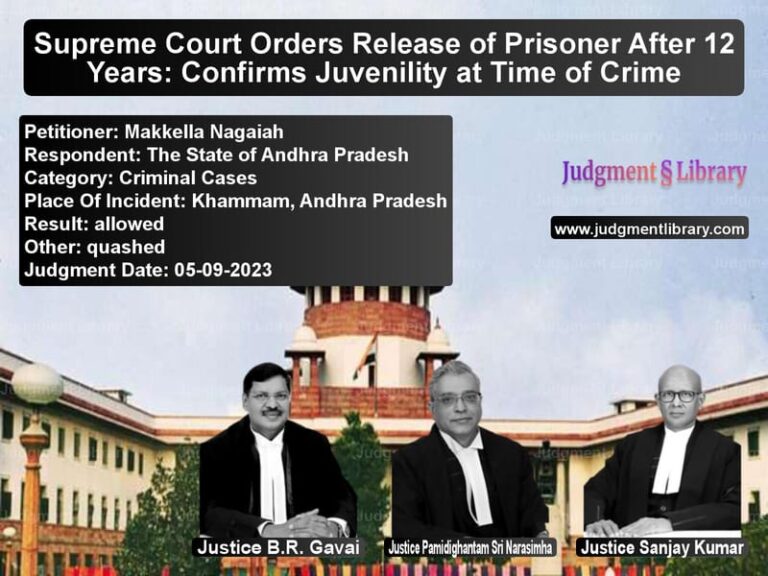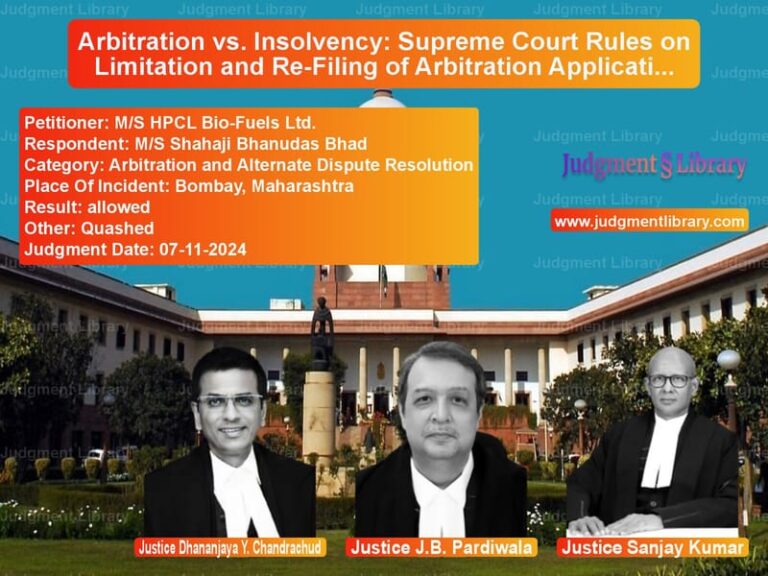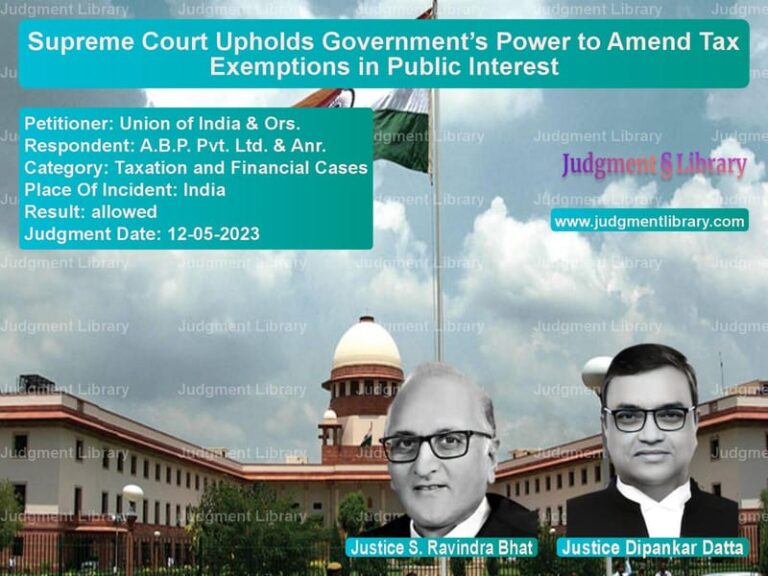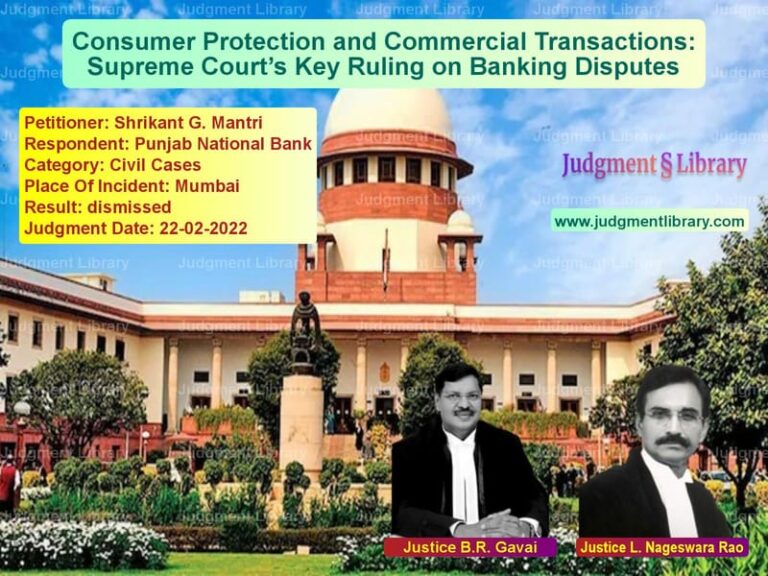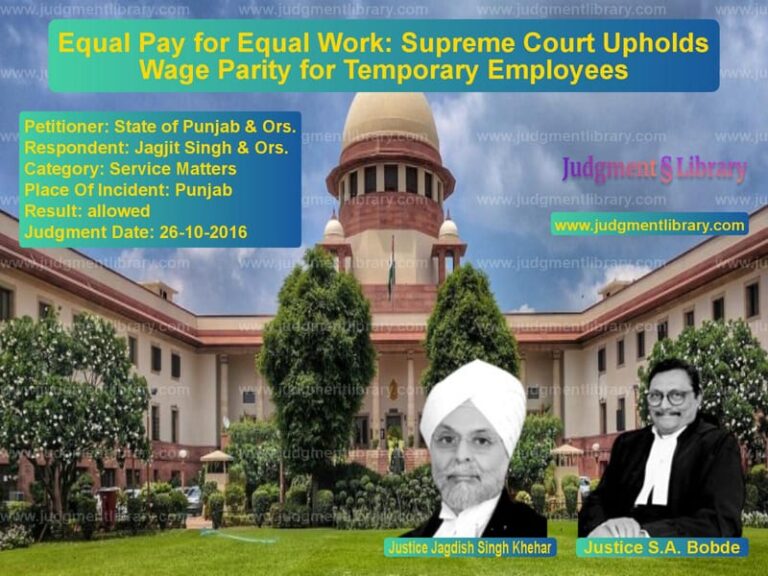Supreme Court Quashes Abetment of Suicide Charge Against Woman in Love Affair Case
The Supreme Court of India, in its judgment in Laxmi Das v. The State of West Bengal & Ors., quashed the charges against the appellant, who was accused of abetting the suicide of a young woman involved in a love affair with her son. The Court held that there was no sufficient evidence to establish direct or indirect instigation under Section 306 IPC and that mere disapproval of a relationship does not amount to abetment of suicide.
Background of the Case
The case arose from an unnatural death registered on July 3, 2008, when the deceased, Souma Pal, was found dead on a railway track between Garia Railway Station and Narendrapur Railway Station in West Bengal. A First Information Report (FIR) was filed on July 6, 2008, by the deceased’s uncle, alleging that Souma took her life due to the accused’s opposition to her love affair with Babu Das, the son of the appellant.
The police investigation led to the filing of a chargesheet against four accused:
- Babu Das (Accused No. 1) – Boyfriend of the deceased
- Subrata Das (Accused No. 2) – Elder brother of Babu Das
- Dilip Das (Accused No. 3) – Father of Babu Das
- Laxmi Das (Accused No. 4) – Mother of Babu Das (Appellant)
They were charged under Sections 306 and 109 read with Section 34 of the Indian Penal Code (IPC) for abetment of suicide.
Key Legal Issues
- Whether the actions of the appellant constituted abetment of suicide under Section 306 IPC.
- Whether the High Court erred in refusing to quash the charges against the appellant while allowing relief for other accused.
- Whether a statement made in an emotional situation could be considered instigation under Section 107 IPC.
Arguments by the Petitioner (Laxmi Das)
- The appellant argued that she merely disapproved of the relationship and had never actively instigated or forced the deceased to take any extreme step.
- She contended that even if she had expressed her unwillingness to accept Souma as a daughter-in-law, such disapproval did not amount to direct or indirect abetment under Section 107 IPC.
- The appellant’s counsel relied on the Supreme Court’s rulings in Ramesh Kumar v. State of Chhattisgarh and Pawan Kumar v. State of Himachal Pradesh, which held that mere reprimands or discouraging words cannot be considered as instigation.
- She also pointed out that the trial court rejected the discharge application without properly analyzing the legal threshold for abetment.
Arguments by the Respondents (State of West Bengal & Complainant)
- The prosecution argued that Souma had confided in a witness, stating that the appellant told her, “If you cannot survive without Babu, then you need not be alive and might die.”
- They contended that such a statement amounted to direct instigation and played a role in the deceased’s mental state before committing suicide.
- The respondents maintained that the chargesheet provided sufficient material to frame charges against the appellant.
Supreme Court’s Observations
- “To establish abetment of suicide, there must be direct or indirect instigation, an act in close proximity to the commission of suicide, and a clear mens rea to abet the act.”
- “A mere remark, even if made in the heat of the moment, does not automatically constitute abetment unless it is proven that the deceased was left with no other option but to take her life.”
- “The statement allegedly made by the appellant does not meet the legal test for instigation, as laid down in Ramesh Kumar v. State of Chhattisgarh and Pawan Kumar v. State of Himachal Pradesh.”
- “No direct evidence links the appellant to actively encouraging the deceased to commit suicide. The allegations are too remote to establish culpability under Section 306 IPC.”
- “Since the High Court quashed the charges against other accused persons for lack of evidence, the same reasoning should apply to the appellant.”
Final Judgment
- The Supreme Court quashed the proceedings against Laxmi Das, finding no prima facie case against her.
- The charges against the other accused remained intact, and the trial against Babu Das was allowed to proceed.
- The Court reiterated that for a conviction under Section 306 IPC, there must be a clear case of active participation or provocation leading to the suicide.
Conclusion
This judgment upholds the principle that mere disapproval of a relationship or an offhand remark does not amount to abetment of suicide. The Supreme Court’s decision ensures that criminal liability under Section 306 IPC is not imposed lightly and must be backed by strong evidence of direct instigation.
Read also: https://judgmentlibrary.com/supreme-court-orders-retrial-in-pocso-case-due-to-fair-trial-violations/
Petitioner Name: Laxmi Das.Respondent Name: State of West Bengal & Ors..Judgment By: Justice B.V. Nagarathna, Justice Satish Chandra Sharma.Place Of Incident: Garia, West Bengal.Judgment Date: 21-01-2025.
Don’t miss out on the full details! Download the complete judgment in PDF format below and gain valuable insights instantly!
Download Judgment: laxmi-das-vs-state-of-west-bengal-supreme-court-of-india-judgment-dated-21-01-2025.pdf
Directly Download Judgment: Directly download this Judgment
See all petitions in Bail and Anticipatory Bail
See all petitions in SC/ST Act Case
See all petitions in Judgment by B.V. Nagarathna
See all petitions in Judgment by Satish Chandra Sharma
See all petitions in allowed
See all petitions in Quashed
See all petitions in supreme court of India judgments January 2025
See all petitions in 2025 judgments
See all posts in Criminal Cases Category
See all allowed petitions in Criminal Cases Category
See all Dismissed petitions in Criminal Cases Category
See all partially allowed petitions in Criminal Cases Category

